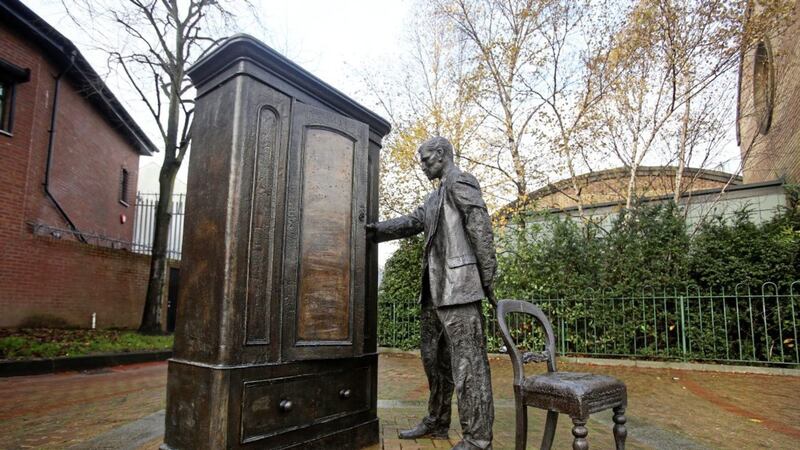A fairly popular defence of Christianity in recent centuries has been that associated with the so-called 'Lewis trilemma'.
The Lewis in question is, of course, the celebrated literary historian and Christian apologist C. S. Lewis (1898-1963).
While the trilemma is evoked in his Mere Christianity (1952), the idea itself is older, and can be found in the punchy version that 'Jesus was either mad or bad or God'.
If the first two possibilities can reasonably be ruled out, the case for Christ's divinity is then felt to be conclusively proved.
More fastidious defenders of Christianity tend now to shy away from the robustness of such a muscular approach to apologetics, finding it not so much childlike as childish in its apparent blindness to the multiple flanks on which it leaves itself open to attack.
Yet the hint of anxiety detectable in such forthright, modern defences of Christianity perhaps deserves some attention, or more at least than the defences themselves, which have indeed been subjected to withering critiques.
Where could this anxiety have stemmed from? The answer may not be too far to seek.
The Enlightenment of the 17th and 18th centuries, and particularly the French Revolution with its Napoleonic aftermath, had churned up the old certainties of Europe and put religion, especially Christianity, very much on the back foot.
As Christianity had for many centuries been the dominant religious force shaping Western culture, it is hardly surprising if the historical earthquakes of recent centuries should have called the very meaning of the Christian Church into question and thrown its continued existence into doubt.
Needing to fight fire with fire, Christian apologists - again not surprisingly - appear to have decided to try to deal with the questions raised by far-reaching historical change by having recourse to 'historical' weapons.
The temptation to do so may already have been very strong in any case after the Reformation.
Since there was an urgent need to show in what the truth of Christianity actually consisted, historical investigation of the Bible, now awakened from its doctrinal slumbers, must have seemed an obvious way of filling the gap left by the rejection of Christendom's traditional reliance on Papal and episcopal decrees to settle questions of ultimate truth.
Against this background, the emergence of a pervasive, anxious habit of regarding the Bible as 'historical' - as the clearest token, ostensibly, of its truth - may have been almost inevitable.
And within this general attitude to the Bible, the attention of Christian apologists seems with perhaps equal inevitability to have fastened on the significance of the 'historical Jesus' as offering knock-down proof of the truth of Christianity.
To the fundamental anxiety involved in having to defend such an elemental reality as religion in a world moving inexorably away - or so it seemed - from its traditional moorings, was added a further complicating factor.
For some of the teaching of the 'historical Jesus' in the gospels appeared to present a figure who sounded not just radical and provocative - or counter-cultural, in current jargon - but at times quite fanatical, as in Matthew 10:37: "Whoever loves their father or mother more than me is not worthy of me, and whoever loves their son or daughter more than me is not worthy of me."
Maybe, however, there is another way of looking at the 'radical' sayings of Jesus. And it may even temper the sense of anxiety that frequently animates Christian apologetics.
This is to go beyond any purely 'historical' approach to the Christian tradition, and to the gospels in particular, and to try to see the latter as creations of religious minds that believed in the fundamental difference, inherited by Christianity from Judaism, between God and the world.
In this perspective, profound human relationships - as between parents and children - will not be viewed as inherently suspect and, in drastic cases, as needing to be sacrificed in favour of God.
Rather the 'danger' they represent will be seen to spring from the very power they intrinsically have to blind us possibly to what is even more real - namely God, the Creator, without whom nothing at all would exist.
Admittedly, not all will accept this. And even those who do may find, paradoxically, that their belief in God as Creator will only come alive in death.
For the unquestionable finality of death can bring home to us, as nothing else can, the banal truth that life is not a possession, but something else.
A gift, perhaps, but maybe even more a burden or a task, one created, albeit, by a loving God.
Modern Christianity's obsession with life, so strikingly at odds with traditional Christianity's haunting awareness of death and finitude - or 'creatureliness' - may well be a consequence of its investment in 'history'.
The more classical belief in God as Creator may point to a more realistic way of coping with the burden of existence, and even finding it 'light'.
:: Martin Henry, former lecturer in theology at St Patrick's College, Maynooth, is a priest of the diocese of Down and Connor.








